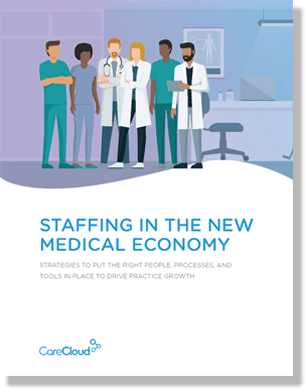Navigating the world of health insurance can feel like you’re playing a game of Alphabet Soup. There are several healthcare plan options available. Let’s discuss Health Maintenance Organizations.
What is a Health Maintenance Organization (HMO)?
An HMO is a type of insurance plan. HMOs typically limit coverage to care from doctors, hospitals and other healthcare providers who work for or are contracted by the HMO.
HMOs usually do not cover out of network care, with a few exceptions such as:
- Emergency Care
- Out of Area Urgent Care
- Out of Area Dialysis
Some plans, called an HMO with a point-of-service (POS) option, allow you to go out-of-network for certain services. However, it usually costs less if you’re cared for by a network provider.
For some HMO plans, you’ll need to choose a primary doctor and will have to get a referral to see a specialist.
HMOs usually provide integrated care and encourage prevention and wellness. So for certain services, such as yearly mammogram screenings, referrals are not required.
Prescription Benefits with HMO Plans
In many cases, prescription drugs are covered under HMO plans, just be sure to check your specific plan. If you are looking to have Medicare prescription drug coverage (Part D), you’ll have to join an Insurance Plan (HMO, PPO, POS,etc.) that offers creditable prescription drug coverage.
What’s the Difference Between an HMO and a PPO Plan?
While searching for an insurance plan, you’ll likely notice some are HMOs, and others are PPOs. You may want to know what each plan type is and what the differences are.
PPO stands for Preferred Provider Organization.
These health insurance plans both use a network of doctors, hospitals and other health care professionals to care for you. The difference is how you interact with the networks.
Under a traditional HMO plan, you choose one primary care physician (PCP). All your health care services go through that one doctor. You’ll need a referral to see another health care professional, except for an emergency. Visits to health care professionals not in your network will likely not be covered by your HMO.
Let’s say you have a horrible ear infection. Instead of heading to an ENT, you’d need to see your primary care physician (PCP) first. If they are unable to get the infection cleared up, they’ll refer you to an ENT in the network.
One exception is that women don’t need a referral to see an in-network obstetrician/gynecologist (OB/GYN) for routine care such as Pap tests, annual well-woman checks, and obstetrical care.
By coordinating your health care through one physician, your PCP, health care costs are lowered for everyone as there are less administrative costs.
PPO plans allow you to see any health care professional you want, regardless of if they are in or out-of-network. Of course, staying within your network means you’ll have smaller co-pays and full coverage once your annual deductibles are met. If you do choose to go out-of-network, you’ll have higher out-of-pocket costs, and not all services may be covered.
What Else Should I Know about HMOs?
Here are a few more important details to know about HMOs:
- If a health care professional chooses to leave the network, your plan will let you know. You’ll be able to pick another doctor in the network.
- It’s vital to follow the plan rules, such as obtaining prior approval for services if needed.
- If you receive health care outside the network, you’ll likely end up paying the full cost.
Sources:
- https://www.healthcare.gov/glossary/health-maintenance-organization-hmo/
- https://www.bcbsm.com/index/health-insurance-help/faqs/topics/how-health-insurance-works/difference-hmo-ppo.html
- https://www.medicare.gov/sign-up-change-plans/types-of-medicare-health-plans/medicare-advantage-plans/health-maintenance-organization-hmo



